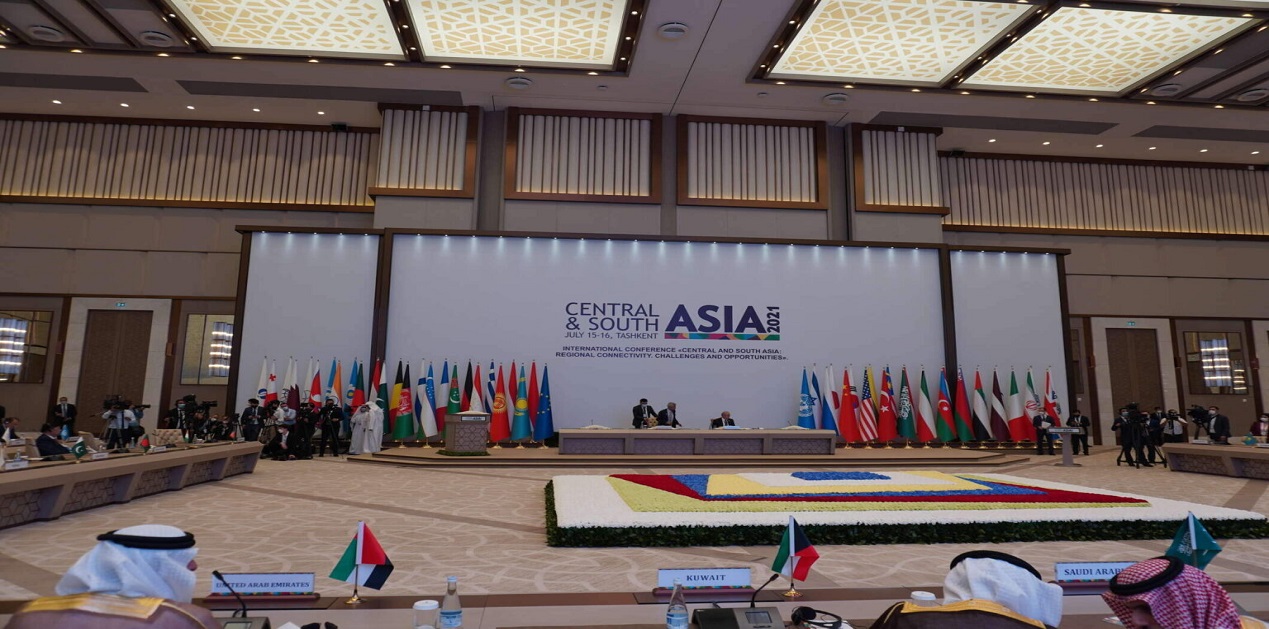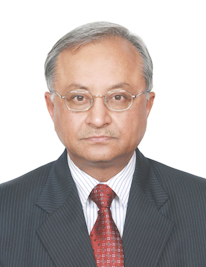President Shavkat Mirziyoyev of Uzbekistan hosted an important conference ‘Regional Connectivity Between Central Asia and South Asia – Challenges and Opportunities’ in Tashkent on 15-16 July 2021. The conference was proposed by the Uzbek President in his statement at the UNGA last September, but the weeks before the conference saw a rapid deterioration in the Afghan situation and the subtext of the informal discussions and the formal statements was the dangerous situation in Afghanistan.
In his well-crafted opening remarks President Mirziyoyev traced the roots of history highlighting the role of ‘Silk Road’ for fostering a dialogue between peoples and civilizations. He recognized the aggregation of Buddhism, Hinduism and Islam in the development of a unique culture in Central and South Asia. He mentioned the contributions of Charak, Brahmgupta, Al-khwarizmi, Avicenna etc. in the ancient past and of Alisher Novoi, Mirza Ghalib, Rabindranath Tagore and Chengiz Aitmatov in the more recent history. President referred to the characterization of Babur by Jawaharlal Nehru as ' a typical king of the Renaissance' and Akbar as a 'tolerant and visionary leader.
President Mirziyoyev noted that the region was facing ‘confrontation and mistrust’ and called for joint efforts for ‘connectivity, co-operation, dialogue, trust and negotiations’ in Afghanistan. The Uzbek President cautioned that peace and stability in Afghanistan was at a turning point and hoped that the ‘wise Afghan people’ would display a ‘readiness for compromise’.
The countries of the two regions and all major countries and international organizations participated in the conference and there was a palpable undercurrent of anxiety over the future of the Kabul regime in the face of rapid advances by the Taliban forces. President Ashraf Ghani warned that Afghanistan may descend into total chaos as seen in Yemen and Syria.
The opening session witnessed an open spat between President Ashraf Ghani and Prime Minister Imran Khan. Afghanistan and Pakistan are two obstacles in physical connectivity between Central and South Asia and their heads of Governments were rightly invited as special guests by the Uzbek President. President Ghani said that ‘contrary to repeated assurances by Prime Minister Khan, more than 10,000 jihadi fighters have entered Afghanistan from Pakistan in the last month, and that Islamabad had failed to convince the Taliban to participate “seriously” in the peace process. He further accused Pakistan that “networks and organizations supporting the Taliban (in Pakistan) are openly celebrating the destruction of the assets and capabilities of the Afghan people and the State.” Prime Minister Imran Khan gave a lame excuse denying the complicity of his regime in protecting and supporting Taliban and claimed “we have made every effort short of taking military action against the Taliban in Pakistan, to get them on the dialogue table.”
External Affairs Minister S Jaishankar was the first speaker in the Plenary session and also moderated the session along with the Uzbek Foreign Minister. In his statement, EAM highlighted that ‘economic growth is universally driven by 3 Cs of connectivity, commerce and contacts.’ Without naming Pakistan, he noted that ‘blocking connectivity in practice while professing support in principle benefits no one.’
All the neighbours of Afghanistan are worried about the impact of a Taliban dominated Kabul region on their own anti-state extremists. Uzbekistan had opened a dialogue with the Taliban quite some time back and is exhorting them to adopt more moderate policies if they seize power to avoid ostracization. Reportedly, Taliban have assured China and Russia that they will not allow Afghan territory to be used by Uighur or Chechen elements. While Russia, China and Iran want the US to exit the Eurasian space, they are wary of a Taliban dominated Afghanistan. In his statement, Russian Foreign Minister Sergei Lavrov lamented the ‘rushed withdrawal of NATO and US forces’ which has ‘exacerbated’ the situation.
Homeland Security Advisor to US President, Elizabeth Sherwood-Randall in her statement assured US support for the Afghan defense forces. The sense among well informed participants in Tashkent was that if the Taliban refuse to resume negotiations and Afghan National Army shows some spine in confronting the Taliban advance, then US may provide air support to prevent an early collapse of the Ghani Government.
The talks between Taliban and Ghani Government continue to be deadlocked as Taliban insist on the release of their 7000 fighters in Afghan prisons. President Ghani has rightly refused as the 5000 Taliban prisoners set free earlier have all joined the ranks of Taliban fighters.
In his statement, President Shavkat Mirziyoyev mentioned the ancient ‘Uttarpath’ linking Aryavarta with Central Asia. In the display maps, roads were shown linking Silk Road to Taxila and to the heart of Indian sub-continent. In the breakout session, Director of Primakov National Research Institute of World Economy and International Relations Fedor Voitolovsky mentioned that Pakistan was a big stake holder in the connectivity process. He also noted that Central Asia will benefit if it has access to India as ‘India has a bigger market.’
Pakistan made its obstinate stand clear when Prime Minister Imran Khan referred to Kashmir as an ‘unresolved dispute’ impacting peace and cooperation in the region. In his statement, Prime Minister Imran Khan made a hard sell of Gwadar Port for sea access to land locked Central Asian Republics. He called the China-Pakistan Economic corridor as the flagship component of China’s Belt and Road Initiative.
While the world would commend the noble goal of Uzbek President in convening the conference, the immediate future looks bleak with the prospects of a civil war in Afghanistan and continued obduracy of Pakistan in blocking transport and trade between Central Asia and India.
There is an atmosphere of positive changes both in Uzbekistan and Central Asian region after President Shavkat Mirziyoyev took over in 2016. He has quietly nudged the Central Asian leaders to come together by encouraging Summits of Central Asian leaders; the third Summit will be held in Ashkhabad soon. By hosting the Conference on Afghanistan in Tashkent in March 2018 and this conference on Connectivity between Central and South Asia, President Mirziyoyev is signaling the high stakes of Central Asian Republics in the future peace and stability of Afghanistan.
President Shavkat Mirziyoyev is now a credible and accepted voice articulating the concerns and aspirations of the five Central Asian Republics.
(The paper is the author’s individual scholastic articulation. The author certifies that the article/paper is original in content, unpublished and it has not been submitted for publication/web upload elsewhere, and that the facts and figures quoted are duly referenced, as needed, and are believed to be correct). (The paper does not necessarily represent the organisational stance... More >>
Image Source: https://www.eureporter.co/wp-content/uploads/2021/07/rsz_tor02123-1536x1026.jpg











Post new comment